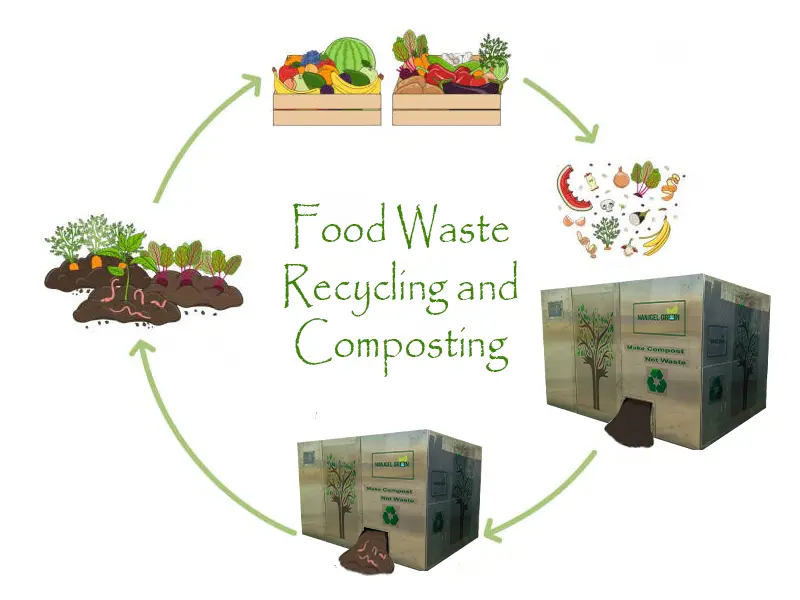What is Food Waste Recycling and Composting?
Food waste recycling and composting are two processes that aim to convert food waste into a useful product. Food waste recycling converts food waste into energy through anaerobic digestion or other processes, while composting turns food waste into a valuable soil amendment. Composting involves breaking down food waste into a nutrient-rich material that can be used to improve soil health and promote plant growth.

Benefits of Food Waste Recycling and Composting
Reduces Landfill Waste: Food waste makes up a significant portion of the waste that ends up in landfills. When food waste is recycled or composted, it reduces the amount of waste in landfills, helping to reduce the amount of greenhouse gases produced.
Improves Soil Health: Composting food waste results in a rich soil amendment that can be used to improve soil health and promote plant growth.
Reduces Greenhouse Gas Emissions: Landfills are a significant source of methane, a potent greenhouse gas. By reducing the amount of food waste in landfills, food waste recycling and composting can help reduce greenhouse gas emissions.
Saves Resources: The production of food requires significant amounts of resources, including water, energy, and land. When food waste is composted, these resources are conserved and can be used to produce more food.
When Biodegradable waste is added to the unit, a shredder shreds it into small pieces and a special Anaerobic process decomposes it into a High-Quality Soil Amendment product.
Food Waste Recycling and Composting Machines
To make food waste recycling and composting more accessible and efficient, many companies have developed food waste recycling and composting machines. These machines make it easy for households and businesses to recycle food waste, and they can be used to produce compost in a matter of days, rather than weeks or months.
Some examples of food waste recycling and composting machines include:
- FoodCycler: This compact machine uses high-heat to rapidly break down food waste into a nutrient-rich compost.
- Jora Composter: This composting machine uses a patented system to compost food waste in a matter of weeks, and it can be used both indoors and outdoors.
- Green Cycler: This machine shreds food waste into small pieces, making it easier to compost and reducing the time it takes to produce compost.
In conclusion, food waste recycling and composting are essential steps towards sustainable living. These processes can help reduce waste in landfills, conserve resources, and improve soil health. With the availability of food waste recycling and composting machines, it is easier than ever to incorporate these practices into our daily lives. So let's do our part in creating a more sustainable future by reducing food waste and turning it into a valuable resource